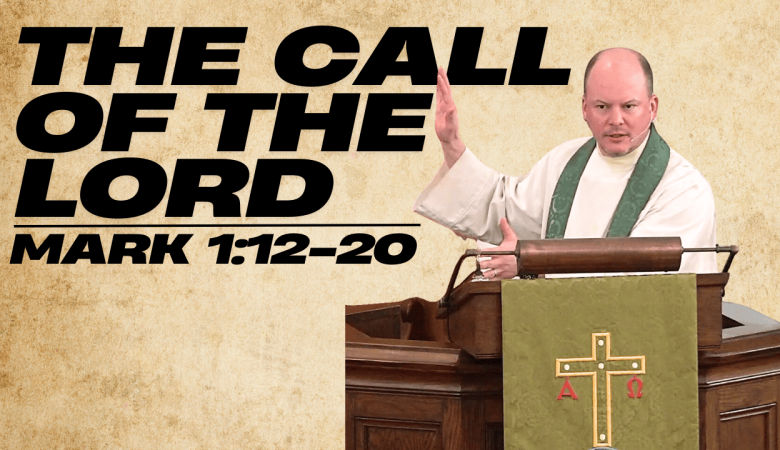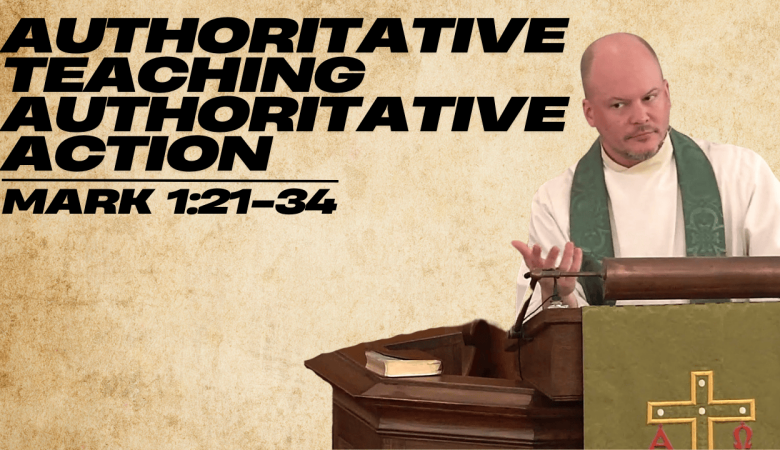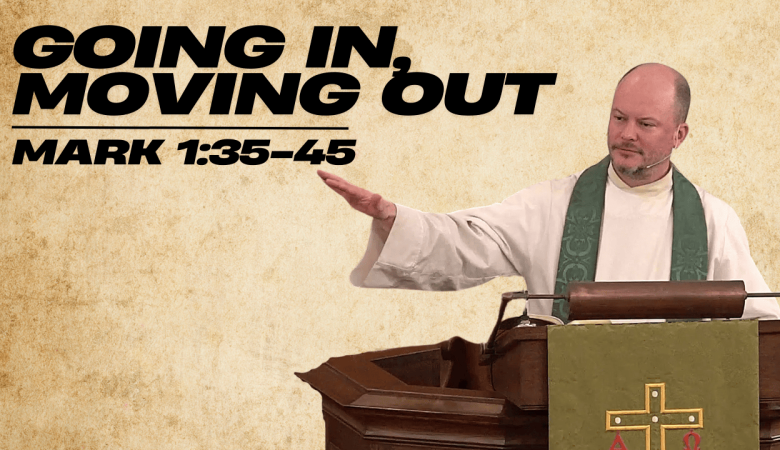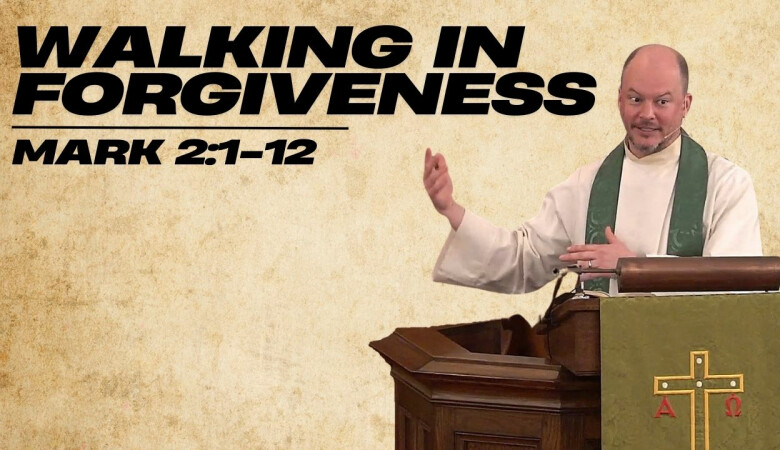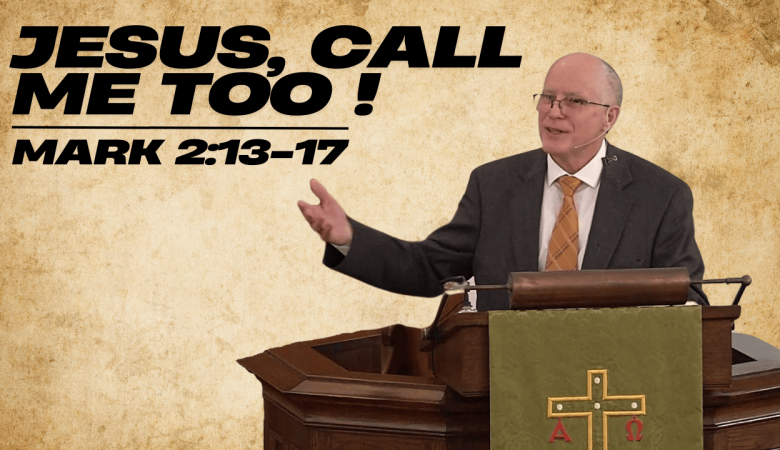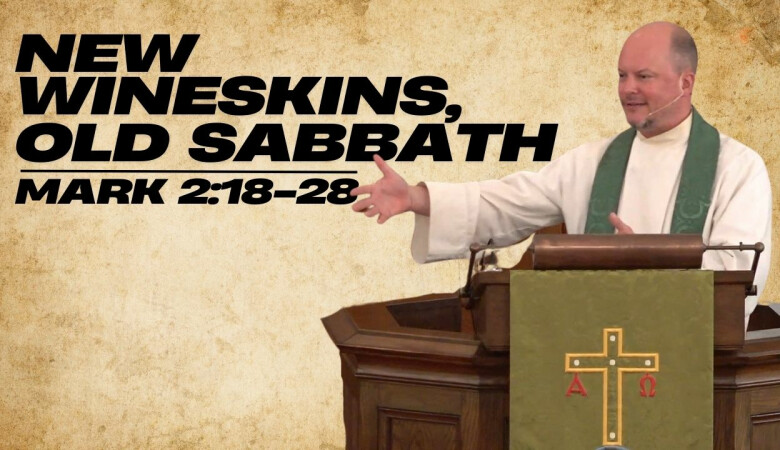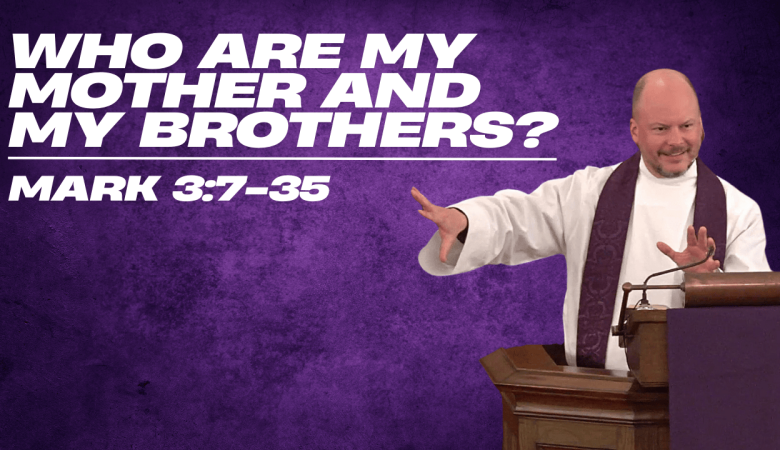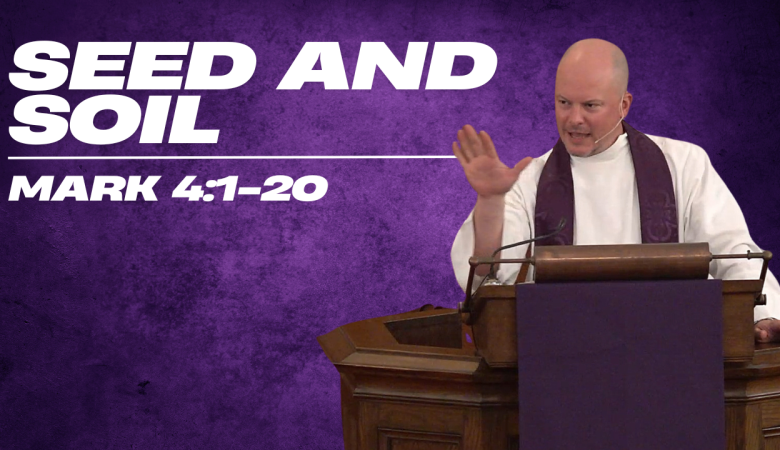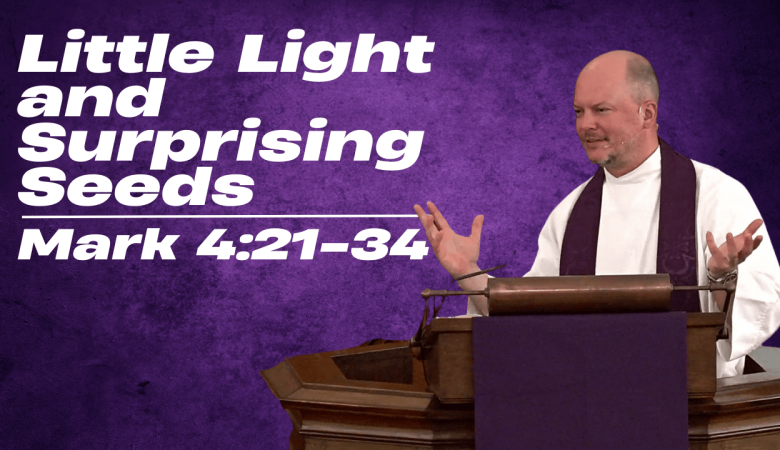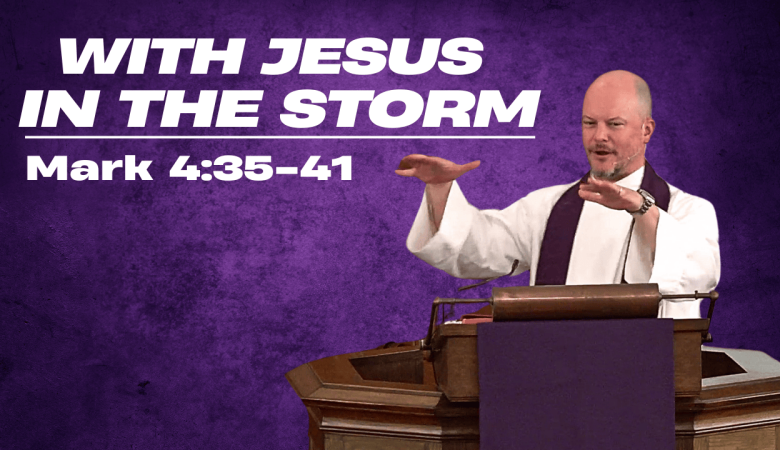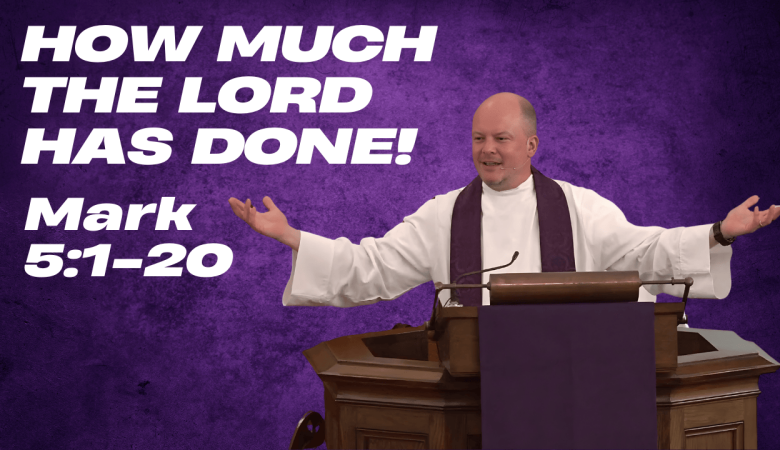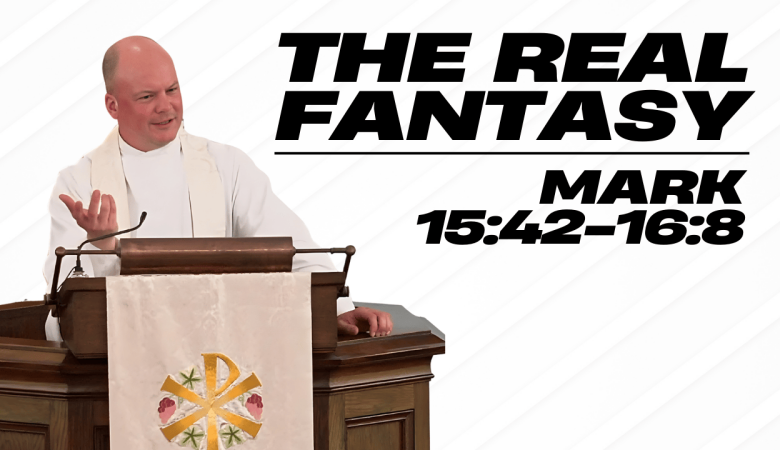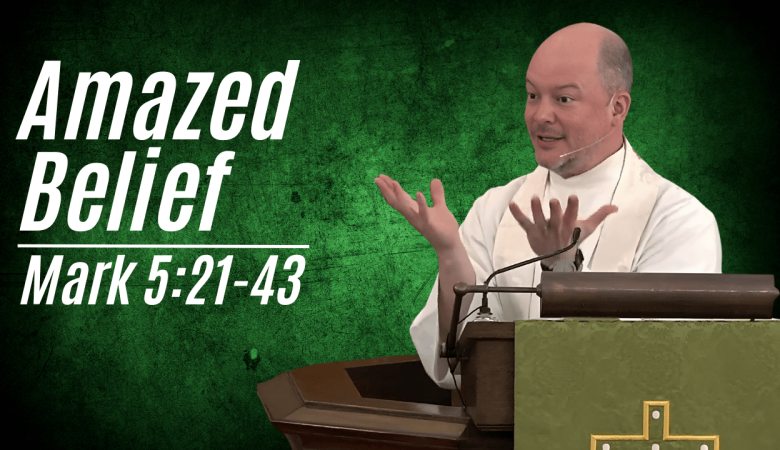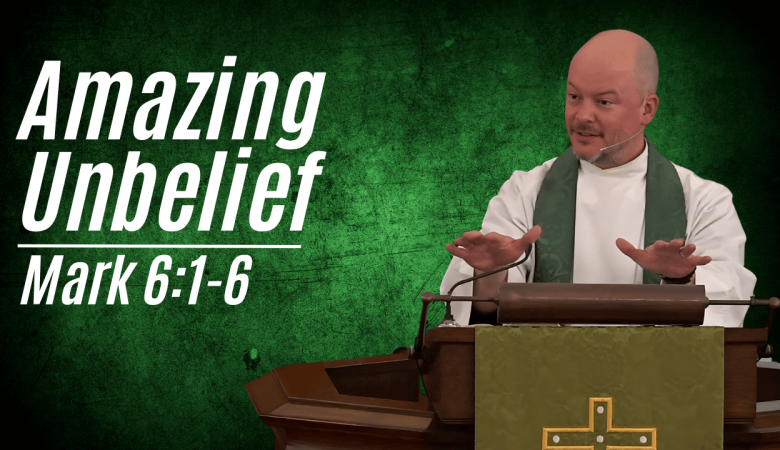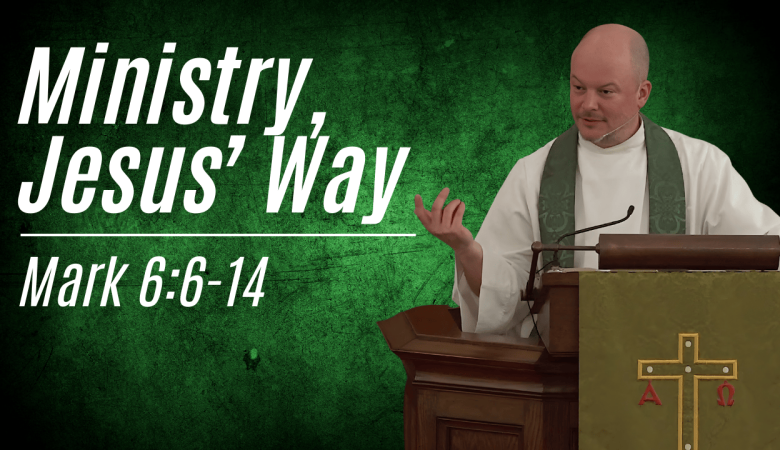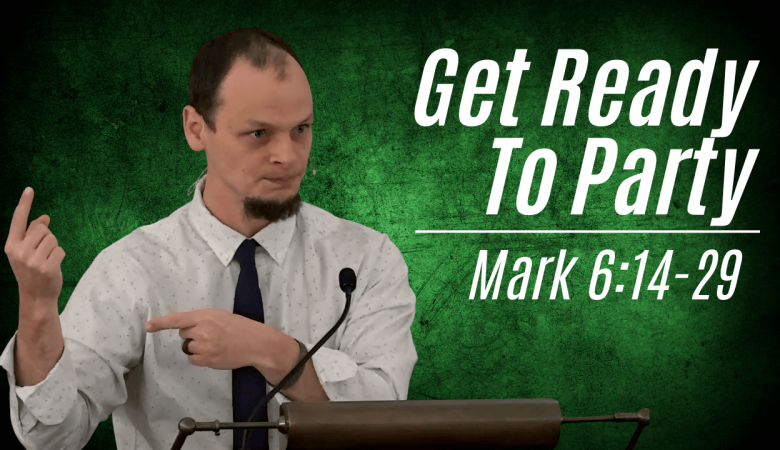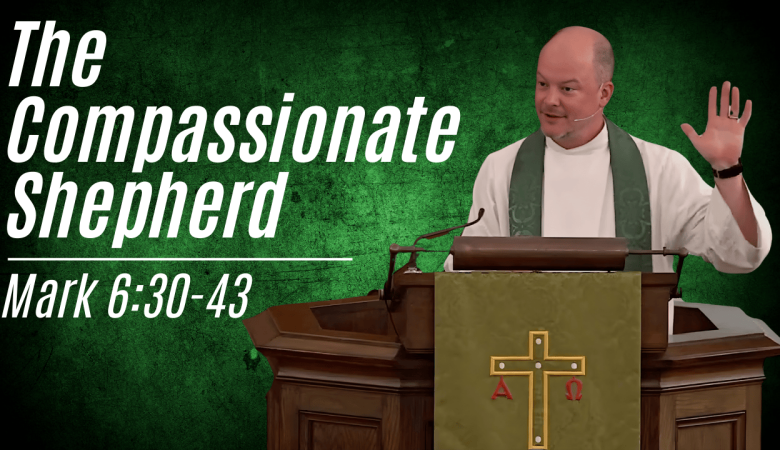Series: The Gospel of Mark
Hosannah, Blessed is the King!
April 13, 2025 | Peter Rowan
Passage: Mark 11:1-11
Summary
Jesus 'triumphal entry into Jerusalem marks a pivotal moment that reveals the unexpected nature of his divine kingship. While crowds gathered expecting a powerful political liberator who would overthrow Roman rule, Jesus deliberately chose symbols of humility and service. His choice to ride a young donkey, while fulfilling ancient prophecy, demonstrated a different kind of royal authority - one based on bearing burdens rather than wielding military might. Jesus's examination of the temple upon His arrival challenged the core of where people placed their trust and hope. The temple represented power, money, and authority - similar to how we today often place our faith in political institutions, financial success, and social status. Through His actions, Jesus demonstrated that true kingdom authority operates differently than worldly power structures, revealing that authentic leadership comes through service and genuine power is found in humility..
Transcript
Now I'd like to invite you to open up your Bibles to Mark, chapter 11. If you don't have a Bible, grab one in the pew in front of you. If you don't have a Bible, please take it home. If you have a friend that you know that might want a Bible, please take it home. Give it to them. You are always welcome to take those Bibles with you.
So we just heard from the Gospel of Matthew the events that are going to take place later on in that first holy week with the events that take place there in Jerusalem. Mostly we heard of what will happen on that first Maundy Thursday when the Lord gives them the new commandments that they love one another, and then the events of Good Friday. But of course, that week begins with this entry of Jesus into the. Into Jerusalem that we've sort of reenacted in a way together this morning. We've been in the Gospel of Mark the last few months. And so I thought this morning maybe we can spend a little bit of time reflecting on that entry into Jerusalem from the Gospel of Mark. So That's Mark, chapter 11, verses 1 to 11. I'm going to read it again for us. Read it for us this morning.
Now, when they drew near to Jerusalem, to Bethphage and Bethany at the Mount of Olives, Jesus sent to his disciples and said to them, go into the village in front of you, and immediately as you enter it, you'll find a colt tied on which no one has ever sat. Untie it and bring it in. If anyone says to you, why are you doing this? Say, the Lord has need of it and we'll send it back here immediately. And they went away and found a colt tied at a door outside in the street. And they untied it. And some of those standing there said to them, what are you doing untying the colt? And they told them what Jesus had said, and they let them go. And they brought the colt to Jesus and threw their cloaks on it, and he sat on it. And many spread their cloaks on the road, and others spread leafy branches that they had cut from the fields. And those who went before and those who followed were shouting, hosanna. Blessed is he who comes in the name of the Lord. Blessed is the coming kingdom of our Father David. Hosanna in the highest. And he entered Jerusalem and went into the temple. And when he had looked around at everything, as it was already late, he went out to Bethany with the 12.
All right, so here is the triumphal entry that Palm Sunday, long ago When Jesus entered into Jerusalem and would make his way to the cross that week, this is what we have from Mark. And I think there's a few things that are happening that we don't really quite expect. And since Mark is actually telling us a few things that I don't think we would quite expect, I want to present it to you in a way that you might not expect. And what I want to do is I want to take it from the end to the beginning, okay? I'm going to say three main things, and they're going to begin at the end, which, Mary Poppins, that's not the right place. Supposed to start at the very beginning, but we're going to start at the end and we're going to make our way to the beginning, okay? And I want us to kind of look at this text a little bit with the idea of what is Jesus perspective? What's Jesus seeing and hearing and intending? Okay?
So first, what is he seeing? And the first thing I want us to say is that Jesus is examining our places of worship. He's examining our places of worship. Verse 11 seems like a strange little odd detail. I said that there's sort of some odd things that are happening here. I thought, this is really interesting. As I kind of looked at this passage, it stood out to me that at the end we're given this little section, it just says this, and he entered Jerusalem and went to the temple. When he looked around at everything, as it was already late, he went out to Bethany with the 12. And we can confidently say that Mark intends for this to be part of the narrative of the triumphal entry of that first Palm Sunday. This is an important detail that Mark wants you to see and wants me to see.
And I can say it fairly confidently because one of the things that we see in this. In this short verse right here is a literary device that Mark has often used already that we've seen this spring. This Latin word, inclusio, you know, which means the inclusion, the beginning and the end are the same thing, which is a clue for you to say, hey, take this together. This belongs together. And so there at the beginning of the text in verse one, we have Bethany mentioned. There at the end of the text, we have Bethany mentioned. That's the way Mark's way is saying, hey, if you want to read, well, take this as part of this same thing, which, I don't know. That seems kind of strange. This is a little thing. Jesus goes in Jerusalem, he goes to the temple, and he looks around at everything. He goes well, it's late. Might as well go back. What's going on here? I'm saying he's looking and he's examining our places of worship. He goes into Jerusalem, he goes to the Temple. He looks at everything.
And my guess is that you likely know that the Temple was the center place, the center focal place, both architecturally and socially, of Jerusalem. It was the main attraction if you were to go to Jerusalem. It still actually ends, is the main attraction if you go to Jerusalem. The Temple Mount there. And so of course, it would make sense to go there. It's sort of like our own mountains and things. The main attractions. They say a lot about us. What happens there says a lot about sort of what we do in a given place where we put our energy and our time and our hopes and desires and all this kind of thing.
Think of our own city here. Harrisburg, the capital is the large building, rather beautiful. Driving across the Harvey Taylor, seeing it looming large there and how much it actually influences, for good and for ill, our city, how our city ebbs and flows with the capital involvement. Many of you would not even live here if it weren't for the capital being present. Of course, think about the towering buildings of the financial district of a city like New York City. Or think of Lincoln Financial Stadium in Philly, how much it gives identity to the people, hopes and aspirations and desires and dreams, right? Not just that they're the main attraction, they actually are reflections on us. And what happens in these spaces are reflections upon us.
In many ways. You could actually say in some regard these are modern houses of worship. Power and money, strength and beauty, the normal things of desire and hope. But think with me, okay, we're not going to look at all this, but some of you will know this text just in. Just in this chapter alone. Mark, chapter 11. We could see very quickly if we kept reading that Jesus goes back to the temple and he turns over the table if he drives the money changers out. Mark doesn't tell us this, but elsewhere we can read that he has a whip. You know, he's driving them out. And then actually in the same chapter, we can see the scribes and the Pharisees challenging his authority.
Think right there in this chapter, there's a further engagement at the temple with money and power, money and power. If we read the next chapter, chapter 12, we could hear him give the parable of the talents, which again has to do with what do you do with what you've been given, right? And then be questioned actually right afterwards about paying taxes to Caesar, the coin, the money. That's reflecting power and authority, politics. Jesus isn't just going to the temple because I don't know where else should I walk around? I guess I've made it. Let's do some sightseeing. He's examining our place of worship, which is to say he is examining where we place our hopes, right? Where are we placing our loves? What holds maybe the possibility of something new to come?
We would do well to allow Lord to examine our places of worship, right? Our places where we're placing hope, maybe to come into our homes and into our hearts and into our wallets and into the rest and look around a little bit, examine where are they placing their hopes and their desires. And frankly, like, if truth be told, we are not very different than this original dynamic, right? This dealing with things like politics and power and authority and finances and all the rest. These are actually very easily the same list that we would write today. Places where we put our hope, our worship seems to be the world we live in. The air we breathe is the same air they breathe. The water that we swim in was the water they swam in. These are all telling us the same thing that we grab for. For our hope and for our worship.
Okay, so Jesus looks and he sees these things. He examines them. But the previous narrative doesn't have him so much examining, but listening. Okay, so the last narrative has to do with Jesus looking the first, the middle narrative has to do with Jesus hearing. And I want us to just title this little section, middle section, Jesus Hearing Our Cries to Save, which is also coming at actually our desires, right, and our hopes.
So you have this little section, and really, this is probably. I mean, really, if you want to put it down, it's more or less just verse 9 and 10, which is really kind of odd because we think of the cries of Hosanna as the primary kind of that's happening in the text. But Mark actually just gives us a little bit. But I want to give you a little context, because what would have happened, really, is that thousands and thousands, thousands of people would have been surrounding and making their way into Jerusalem. The crowds there, in Jerusalem for any festival would have been significant. We don't really, really know an exact number of how many people lived in Jerusalem at the time of Jesus. A good estimate is around 50,000 people. So, by the way, that's largely just the exact. It's a little bit smaller than the official boundary of the city of Harrisburg, but about 50,000. We aren't exactly sure, but we think actually that when these festivals would happen, for any festival that might swell to twice that, but for Passover, most people think that would have swollen to about three times that.
So, okay, you got this city that's used to having 50,000 people, and also, most likely there's around 150,000 people in and around Jerusalem. It makes more sense why they would have been out in Bethany, which would have been about two miles away from the temple. It would be, like from here to Italian Lake, about two miles away. People would have not been able to stay in the city. And so they're coming in and going out and all this kind of thing. So it would have been undoubtedly true that crowds would have constantly been going out in and around the city. But what's also true, and we get a little glimpse of this, we actually heard some of this even in our narrative. What would have also been true because of this is that there would have been more police, patrolling police, Roman soldiers, right? They would have been wondering, because what would so often happen is that the times of festivals would have been the times of religious riots. I mean, these are the stories that gave identity to the people of God. They were the ones that were brought out from slavery, brought to freedom, and now they're under the control of another ruler, Rome itself, Caesar.
Anyway, there's little to no question that when crowds shouted out, hosanna, blessed is he who comes in the name of the Lord. Blessed is the coming kingdom of our Father David. Hosanna in the highest. What they wanted was, well, what was reflected in the temple. Power, David, a new king, politics, greater authority. Our king, not these other would be pilots and all the rest. What they wanted was for the kingdom to come in the same ways that we are all so often desiring. Save us by these things of strength, finances, and all the rest. Hosanna is not just a shout of praise. What I'm saying is that's actually a call for hope. It's reflective of our hopes and our desires. We kind of shouted as a praise thing, hosanna in the highest. But hosanna means save us. Save us. And Jesus has just looked upon their temple and seen that the people of God themselves are looking for their salvation in the same way that the world has always looked for it. Strength, power, money.
So Jesus goes into the temple to examine their place of worship, which is their place of hope. Here in the middle, they are hearing their cries, save us. Which is a cry of hope. And they're all bound up in this power play. Maybe this will be our time. Maybe this Will be our time in our day when we get our man on the throne. Fact is that Jesus knows their inclinations, and frankly, he knows our inclinations. He knows their hopes, and he knows our hope. He knows what they worship. He knows what we're inclined to worship. He knows that they are inclined to run after the throne. Maybe we're inclined to run after the White House. We're inclined to run after beauty and bank accounts and all the rest. He knows that they thought, just like we thought, that the way up is the way up. Get on the pedestal, make a name for yourself, go viral. Then your life will have meaning.
And yet, no doubt knowing that this is the way of our hearts. The first movement, which is actually the bulk of this passage, is Jesus telling us that the way up is the way down. Glory comes through humility, Resurrection through the cross. So at the end, I said he looks around, right? He examines our places of worship. In the middle, this little middle section, he's hearing. He's hearing our cries for salvation, which is to say our hopes and our desires. But in this first section, which is the bulk of our text from Mark, of what happened that Palm Sunday long ago, he's actually instructing us in the true way of salvation.
Okay, so I said that there were a few odd things that sort of stood out to me when I was reading this passage this week. One of them was, like I mentioned, that he goes into the temple. It's a little detailed. It seems so small and easy to go over, but actually it's important for Mark. And then I thought, well, another really strange thing is how short of a time we are given of the actual template, like procession itself and the cries. It's not a lot of time. There's two verses here. But the other thing that really, really stood out to me is that Mark gives us so much detail about getting this colt, this little donkey colt. He puts so much emphasis on this.
Of course, overall, what we see is that Jesus is the one in control and that he wants this whole procession done in a way that he wants to communicate something intent, basically, his intent behind it. He's instructing us in who he is and what his salvation looks like. He's orchestrating it. That seems to be a big, big theme here. There's a divine orchestration taking place. The only words in this whole story from our Lord himself are the words of where to get the donkey and what to do about it, which just seems so odd. You know, why not speak to all these crowds who are gathered who are shouting, hosannas. Why not say something when you're looking around the temple? Hey guys, I'm going to be back tomorrow. I'm going to be flipping some tables. You better be there. I don't know, something else instead. The only words we get from our Lord in this passage are about this donkey.
There are details, of course, that do tell us about his divinity. In a way, he's seeing things that normal human would not see. He gives us details like it's tied up outside. That would have been different. Actually. Donkeys wouldn't have typically been tied up outside of buildings. I didn't know that until I read that this week. It hadn't been ridden. That was a detail that he said. And his disciples wouldn't have known that he knew that. And all these details, they really, they matter for who he's trying to communicate himself as, how he's trying to instruct us. The Mishnah, which is the writing down of the oral Jewish tradition, said that only kings could ride an unridden horse. So an unridden donkey would have been kind of a declaration of royalty. Jesus entering into the great city of David on an animal itself would have been a declaration of royalty.
Jesus response to the questions the men are asking, right, why are you doing this? Their response was, the Lord has need of it. That would have been a declaration of royalty. So Jesus is kind of through all this, he's saying, I am the king. I'm the one who actually sees things that you don't even understand. Who's orchestrating this in a way that is going to communicate. Here is the king entering. So for all this, that speaks to our hopes for salvation and all the rest, one thing that he is saying is, hey, this king that you're desiring, this is me. And yet he's doing it in a way that is also head scratching. This isn't how it's supposed to be. Not if powers to come the ways that we think power comes.
One of the things that is most intense, one of the things that Jesus is most intent on is that it is this donkey, this colt. Matthew and John make clear for us what mark only kind of alludes to here and that Jesus is making good on this prophecy. Zechariah, that we heard Nicole read for us earlier from the old testament reading, Zechariah 9 says this, say to the daughters of Zion, behold, your king is coming to you. That's what Jesus is saying, I'm coming to you and I'm the king. Then Zechariah says this, humble everybody Else wants to pomp in circumstance, right? Shout, take down Pilate. Do away with Caesar. Come with fanfare. Jesus says, I'm a king, but fulfilling Zechariah 9. Humble, mounted on a donkey, on a colt, the foal of a beast of burden, maybe.
Turn with me to the inside cover of your bulletin. There's a quote there from Martin Luther. It says this. Look at him. He rides no stallion, which is a war animal. And he comes not with feral pomp and power, but sits on a donkey, which is no war animal, but which is ready for burdens of work that will help human beings thereby. He shows that he does not come to terrify people, to drive or oppress them, but to help them to carry their burdens and take them on himself.
Your king is coming. Your hope is here. That's what Jesus is saying. Your king is coming. Your hope is here. The true object of your worship is me. But I'm not what you expect. It says, Zechariah says he is humble. That is more of a quote from the Greek Septuagint, which does use the word humble, but actually the Hebrew word actually there in Zechariah is often translated afflicted. Afflicted, mounted on a donkey. He comes weighed down, not as the beast of battle, the horse, but the beast of burden, the donkey. Friends, this is our Savior. This is how he wants you to understand what he is doing.
He is not like the other saviors that you so often run to, that I so often run to, that we all do. All of those are saying that the more you have, the more you'll get. Grab, take. He's unlike our would be saviors. He's unlike the places where we so often go for worship, the places of power, the places of pomp and circumstance. And look at me now. Jesus says, and he's going to be enacting this, of course, throughout the week. But he begins it right here. He says, the way up is the way down. The way to glory is through humility.
Philippians, chapter two. My throne will come after my affliction. Right here. He is setting us. He's kind of setting us up. This is where I'm headed, telling you this is the good news of Christ. But it's also frankly, what God invites you into. He would gain his life, must lose it. This is the way the world really works. We think it works the opposite way. Jesus says, no, I'm coming to you humble, afflicted. I'm a king that goes low before I go up. And he says, follow me in it. Follow me in it.
What we're going to see, of course, through this week as we gather together, as we gather on Maundy Thursday, is the Lord actually takes the place of the servant, right washing his disciples feet, he will make his way to the cross, the place of the thief and the murderer, taking our sins upon himself all over. This is our Lord telling us, instructing us who he is and the right object of worship, that the King of glory comes, and he comes humbly lowly afflicted for us.
Let me pray for us. Lord, we come to this text in Mark, and it's so different than what we might expect. And yet how consistent it is with what you teach us and how necessarily consistent it is, because we so often think the very opposite. Jesus, this week would you, through your humility, enliven our hearts that we might walk in your ways as a humble people who glory in the reality that we have a crucified Savior? Something that would have been humiliating for anyone living at the time would have been an absurd claim. And it is today too. Lord, I pray that we would find our joy and our life not in the places of power, but the place of humility, the person of humility and affliction. Lord Jesus himself, in whose name we pray. Amen.
Series Information
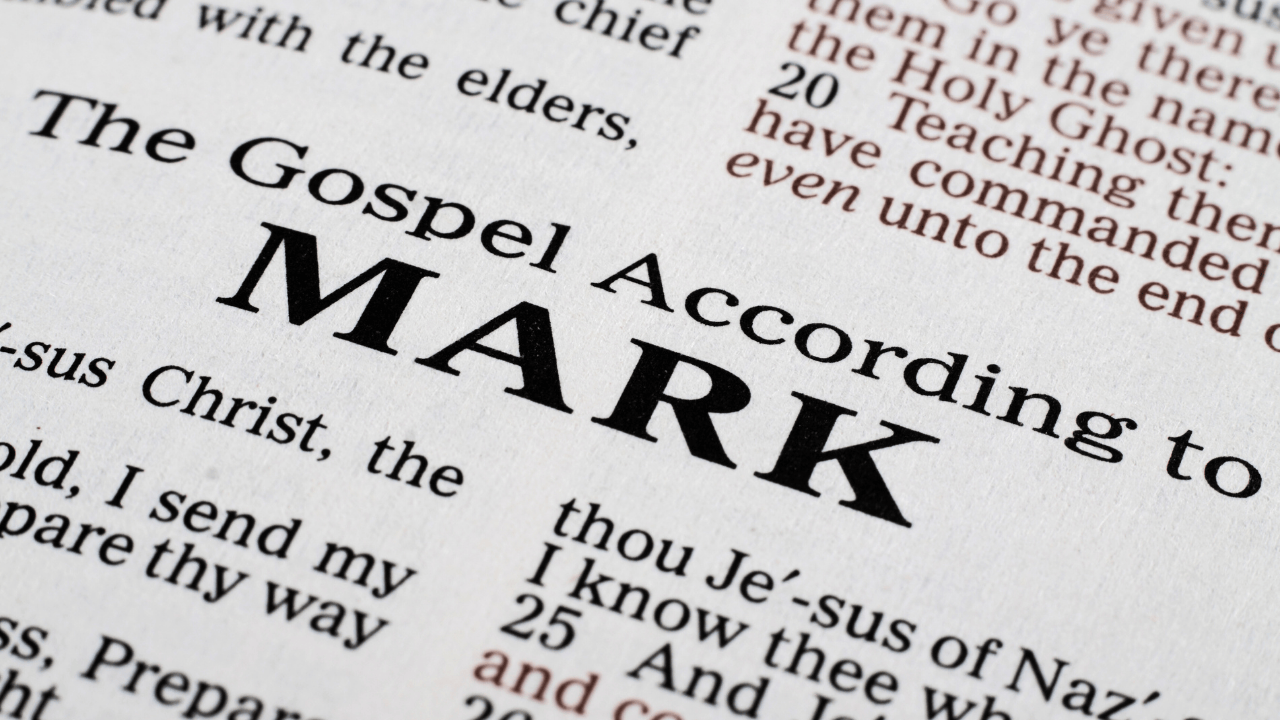
Mark's gospel is fast. He jumps right into what is central to the good news, the gospel, of Jesus. John the Baptist comes, and he is great, but his whole message is one of preparation for the greater one who would come after, Jesus. And everything John says has to do with this comparison of just how great Jesus is. We also see this through the writer of the gospel, Mark, and the apostle who was behind Mark's writing, Peter. Then we quickly move to Jesus' baptism by John and we see here the other central idea of the gospel, that this great one who has come humbles himself to associate and own the sins of humanity. Here is good news!


